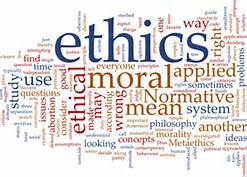Everything is founded on faith.
Three stories.
 A group of students and I discussed a question they had heard in class: “Why are humans always at war?”
A group of students and I discussed a question they had heard in class: “Why are humans always at war?”
I asked what was said in class. The discussion centered on people needing to make a decision against violence, for peace. I asked if the professor gave a standard, a reason given, against violence, for peace. There was none.
“There are two basic beliefs which form the basis for the Christian worldview,” I said, “Absolute truth and humanities’ inherent corruption.”
“Absolute truth gives us a basis for saying what is right and wrong,” I continued, “Inherent corruption—what comes from inside us—shows the reason why humans are at war.”
“Think of it this way,” I concluded, “The problem is not out there (pointing away from myself), the problem is IN HERE (pointing at my chest).”
 Another Comenius student stopped by at lunch to ask, “My law professor says that the law changes depending on the culture. What will he base his ethics on if judicial rulings are based on the shifting standard of the day?”
Another Comenius student stopped by at lunch to ask, “My law professor says that the law changes depending on the culture. What will he base his ethics on if judicial rulings are based on the shifting standard of the day?”
“The only basis your professor has for law,” I began, “Is the hope of evolutionary development based on the assumption of human perfectibility.” I expanded on the ideas over lunch.
After her class that same day she texted me. “My law professor gave a lecture on Liberalism. He believes humanity will learn from its mistakes and flaws and evolve into morally better people – exactly what we were discussing at lunch!”
 One of our students studies informatics (an emphasis on cyber security). She was discussing a class assignment with me. The question was based on a Steve Jobs quote:
One of our students studies informatics (an emphasis on cyber security). She was discussing a class assignment with me. The question was based on a Steve Jobs quote:
“Technology is nothing. What’s important is that you have a faith in people, that they’re basically good and smart, and if you give them tools, they’ll do wonderful things with them.”
The class discussion questions (not repeated here) had nothing to do with the obvious, underlying assumption of Jobs’ assumption: people are basically good.
“Concern about cyber security itself is based on a glaring premise” I stated, “We need protection against technological threats. Technology may change, but human nature does not.” We discussed the assumption that humans are inherently corrupt even if people do wonderful things with technology.
 Students in public university are being taught from a belief system. Every belief system begins with assumptions. Comenius students have the opportunity to understand their academic – intellectual development from a decidedly Christian perspective.
Students in public university are being taught from a belief system. Every belief system begins with assumptions. Comenius students have the opportunity to understand their academic – intellectual development from a decidedly Christian perspective.
The Comenius Institute, where Christian wisdom connects with college life.
Everything we teach, everything we learn, is founded on faith. Dr. Mark Eckel points out belief statements wherever he sees them. Mark is the president of The Comenius Institute.


Dr. Eckel, while we agree, I wanted to observe (opine?) : regarding your point (with which I agree) “The only basis your professor has for law . . . Is the hope of evolutionary development based on the assumption of human perfectibility.” Isn’t it interesting how the “world” can take a divine promise (we will be like Him) and twist it to an event we can do for ourselves. Reminds me of the early lie in Genesis “Surely, you will not die.” We have this over and over again in human history. Taking what God meant for our good and His Glory and perverting it for the person alone which results in separation from God (who is our only hope).
Love your topics Mark. May God continue to use you
and this institution to draw people closer to him.
Your Brother in Christ
Gerald L Lee